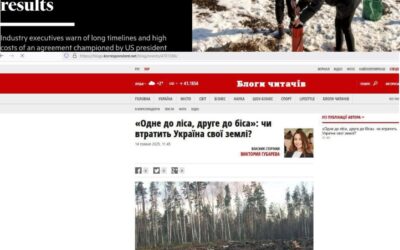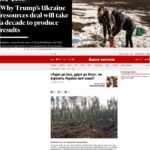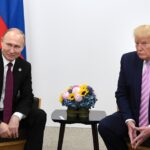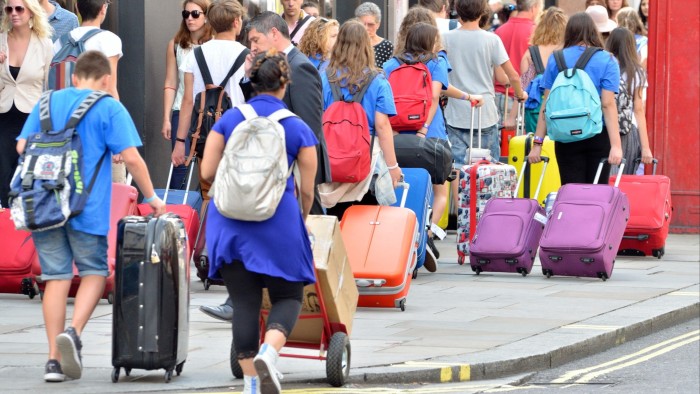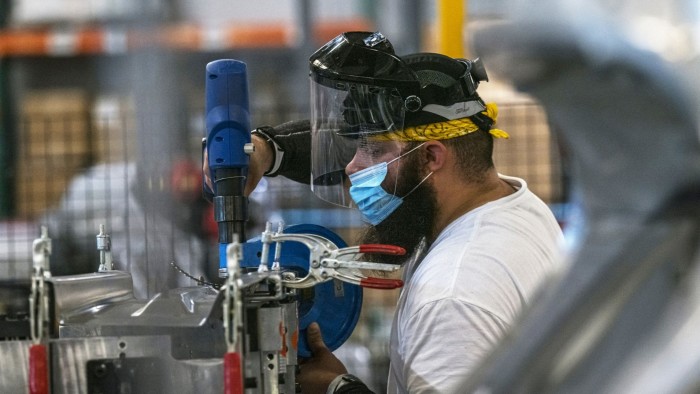Oil prices fall on Trump’s Iran deal comments
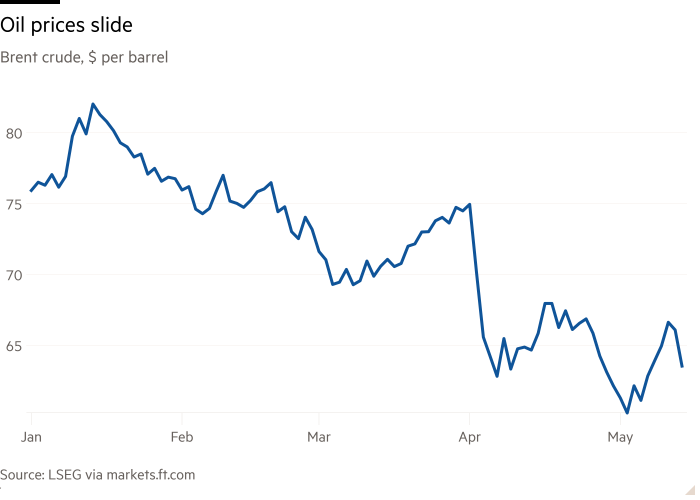
Unlock the White House Watch newsletter for free
Your guide to what Trump’s second term means for Washington, business and the world
Oil prices dropped more than 3 per cent on Thursday after Donald Trump suggested his administration was making progress in its indirect talks with Iran to reach a deal to curb the Islamic republic’s nuclear programme.
Prices for Brent crude, the international benchmark, slid by 3.7 per cent to $63.64 after the US president said Washington was in “serious negotiations” with Iran.
“We’re in very serious negotiations with Iran for long-term peace,” Trump said in Doha, the second leg of his tour of the Gulf, according to a report by the White House press pool. “We’re getting close to maybe doing a deal.”
He gave no details to back up his comments.
Prices for West Texas Intermediate, the US benchmark, traded 4.1 per cent lower at $60.57 a barrel.
Trump’s comments came after his envoy Steve Witkoff held a fourth round of talks with Iranian foreign minister Abbas Araghchi on Sunday ahead of the president’s trip to the region.
Iran’s foreign ministry described the negotiations as “difficult but useful”.
Experts say securing a deal that is acceptable to both sides will be a lengthy and highly complex process given the deep levels of mistrust between the foes and the scale of Iran’s nuclear advances.
US officials have given mixed signals on what they would demand of Iran, but in recent comments Witkoff reiterated that the Trump administration wanted the full dismantlement of Tehran’s nuclear programme.
He told Breitbart, a rightwing US news website, on Friday that Iran would have to dismantle its three main nuclear facilities and warned that if talks did not make progress on Sunday, they would not continue and “we’ll have to take a different route”.
But that would be a red line for Tehran, which insists that as a signatory to the non-proliferation treaty, it has a right to enrich uranium domestically.
While Trump has repeatedly said he wants a deal with Iran to resolve the crisis, he has also threatened military action if diplomacy fails and reimposed sanctions on Iran as part of his so-called maximum pressure campaign.
After the last round of talks in Oman, Araghchi said that “there will be no compromise over” Iran’s right to enrich uranium.
He added that there was the “possibility that we will agree to some limitations regarding the dimensions, amount and level [of enrichment] for a period to build confidence”.
“But the issue of enrichment is non-negotiable, as is the removal of sanctions,” he said.
His comments underlined that Iran could be willing to accept a deal similar to the 2015 accord it signed with the US and other world powers that severely restricted its nuclear activity in return for sanctions relief.
Under the terms of that deal — which took more than two years to negotiate — Iran was not allowed to enrich uranium above 3.67 per cent purity and its stockpile of enriched uranium was capped at 300kg.
But after Trump unilaterally withdrew the US from the accord in 2018 and imposed waves of sanctions on the republic, Iran ramped up its nuclear activity. For several years it has been enriching uranium up to 60 per cent purity, which is close to weapons grade.
Trump has used his three-country tour of the Gulf to both rage against Iran and hold open the prospect of a deal.
In a speech in Riyadh on Tuesday, he said that while “Arab states have focused on becoming pillars of regional stability and world commerce, Iran’s leaders have focused on stealing their people’s wealth to fund terror and bloodshed abroad”.
He also said: “If I can make a deal with Iran, I’ll be very happy”.
“But if Iran’s leadership rejects this olive branch . . . then we will have no choice but to inflict massive maximum pressure, [and] drive Iranian oil exports to zero,” he added.
Iran’s foreign ministry described Trump’s remarks as “deceitful and offensive” saying they were aimed at “causing division between Iran and its Arab neighbours”.
Iran’s oil exports averaged 1.56mn barrels a day from January to May this year, making it the fourth-largest exporter in the Opec oil cartel, above both Kuwait and Nigeria, according to energy data group Vortexa.
Analysts are concerned that there is a growing mismatch between increased oil production from Opec countries, led by Saudi Arabia, and weak demand.
The International Energy Agency said on Thursday that economic uncertainty would slow the world’s oil demand growth to 650,000 barrels a day for the rest of 2025, down from nearly 1mn barrels a day in the first quarter.
Additional reporting by Malcolm Moore in London
